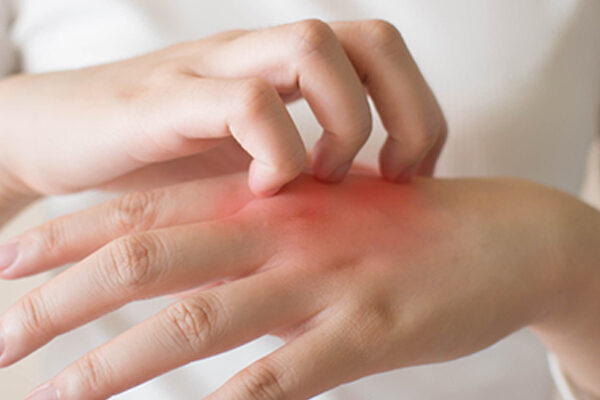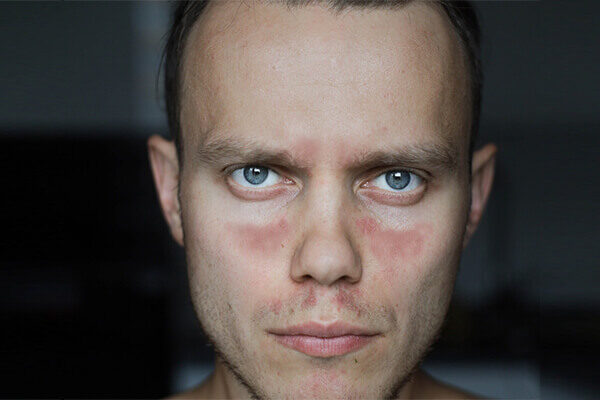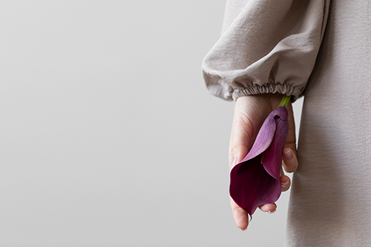Updated on July 6, 2023
Breast Eczema: Symptoms, Causes, and Best Treatment
Breast Eczema – A rash on the breasts can be frightening and unpleasant. However, itchy breasts are frequently the result of eczema or atopic dermatitis.
Atopic dermatitis is a common skin condition that affects over 9.6 million children and 16.5 million adults in the United States alone. External bacteria, allergens, or irritants may cause it. Inflammation occurs when your body overreacts to substances known as allergens. This condition typically causes dry, itchy breasts and scaly or discolored skin on one or both breasts.
Eczema is not contagious, but if your skin becomes too irritated, it can lead to infection. Unfortunately, eczema has no cure, but with the proper diagnosis and medications, breast eczema can be treated quickly and effectively.
This article will discuss the causes and treatments of breast eczema. It will also explore the differences between breast eczema and Paget disease of the breast, a rare form of breast cancer.
What is Breast Eczema?
Breast eczema is a skin condition that causes dry, discolored, itchy, and bumpy skin. It can show up in the dark areas around your nipples (areolas), between the breasts, under the breasts, on the sides of the breasts, or anywhere else on the chest.
Eczema impairs the skin barrier function (the “glue” that holds the skin together). As a result, the skin becomes more sensitive, susceptible to infection, and dry.
Breast Eczema Symptoms
Breast eczema resembles other types of eczema. It is common to encounter:
- Red and flaky skin around the breasts
- Rough and sensitive skin around the nipples
- Breasts or nipples that itch a lot
- Breast or nipple fractures
- Skin tone shifts (light or dark spots)
- Breast skin thinning
A rash on the breast can occasionally be a sign of a more serious condition. Consult a medical professional immediately to examine your breast if you notice symptoms of a rash.
What Causes Breast Eczema?
Breast eczema, like eczema on other parts of your body, has no known cause. However, It is most likely due to a variety of factors such as:
- An overactive immune system
- A genetic predisposition
- Exposure to environmental triggers
Exposure to chemicals in everyday household products, such as soaps, detergents, shampoos, body washes, and other cleansing products, can cause eczema. People are more likely to develop eczema if they have other allergies from:
- Fragrances
- Tobacco smoke
- Other metals, such as nickel
- Antibacterial creams
- Cocamidopropyl betaine, for example, is a thickener (which can commonly be found in cosmetics and personal hygiene products)
- Antibacterial ingredients found in personal care products, such as isothiazolinone
- Formaldehyde
- Paraphenylenediamine and other dyes
- Soaps and other cleaning agents
Also Read: What Causes Eczema Flare-ups?
What Triggers Breast Eczema?
Breast eczema can be triggered by the same factors that cause eczema elsewhere on your body. However, everyone’s triggers are unique. The key is to figure out what causes your eczema flare-ups and try to avoid them.
Some of the most common causes of breast eczema are:
-
Excessive skin rubbing:
This can be caused by scrubbing or scratching your skin, as well as by wearing tight bras with irritating rough fabric.
-
Prolonged skin moisture:
Moisture from sweaty workout tops or wet bathing suits can potentially cause skin irritation and eczema flare-ups on the breasts.
-
Chemical irritants:
Applying perfumed lotions or body sprays to the breasts can cause eczema rashes.
-
Dry skin:
Frequent hot water showers and not moisturizing the skin of the breasts and nipples can cause a flare-up.
-
Environmental allergies:
Eczema patients frequently have allergies to things like dust and grass.
-
Food allergies:
Severe food allergies (such as wheat or dairy) can occasionally cause eczema. Avoiding food triggers can improve skin health in some cases. However, most people do not benefit from a strict diet when treating eczema.
How can you tell the difference between Paget’s Disease and Eczema?
Itching of the nipples may indicate something more serious than eczema in some cases. Paget’s breast cancer is a rare type of breast cancer that begins in the nipple and spreads to the areola (the dark area of skin around the nipple).
Because the first symptoms are typically a red, scaly rash of the skin, it is frequently misdiagnosed as eczema of the breast or nipple. Although the causes of Paget’s disease in the breast are unknown, many doctors believe it is caused by ductal carcinoma in situ, a type of non-invasive breast cancer (DCIS). Cancer cells from an existing tumor in the tissues behind the nipple travel to the nipple and areola via the milk ducts.
Paget’s disease typically affects only one breast, whereas eczema affects both breasts and other areas of your chest. Symptoms of Paget’s disease may include:
- Itching
- Burning or tingling sensations
- Crusty, flaky, thickening, or oozing skin on the nipple and/or areola
- bloody or yellow nipple discharge
- Inverted nipple
- A lump in the breast or behind the nipple
Also read: Nummular Eczema – What is it?
How can we Diagnose Breast Eczema?
With a simple examination of the skin, a dermatologist will most likely be able to diagnose breast eczema. They may also ask the sufferer to describe symptoms when they started, and if they have a family history of eczema, asthma, or hay fever.
A skin biopsy may be performed by the dermatologist in rare cases. This enables them to examine a small piece of skin under a microscope to assist in determining the best treatment. This is typically done to rule out other skin conditions, such as psoriasis or Paget disease of the breast.
Management of Breast Eczema
If a person has mild breast eczema, simply avoiding triggers may be sufficient to cure the condition. However, in certain cases, medical intervention may be required. Breast eczema medical treatment may include:
- Topical corticosteroids
- Topical nonsteroidal anti-inflammatory drugs
- Oral steroids
- Phototherapy
- Immunosuppressive medications
- Biologics
- Topical calcineurin inhibitors
If people are having trouble sleeping through the night due to the severity of their symptoms, doctors may prescribe sedative antihistamines to help them sleep.
Home remedies and lifestyle changes may also aid in the management of breast eczema symptoms. Among the things that can help alleviate the symptoms are:
- Reducing the stress levels
- Avoiding bathing or showering in hot water, which can irritate the skin, instead use warm water
- Avoiding cosmetics and toiletries that contain a lot of alcohol or perfume, as these can irritate the skin and cause a flare-up
- Getting plenty of rest
- Keeping the skin moisturized by using an emollient on a regular basis
- Avoiding scratching
Read more about Guide to living with papular eczema
Takeaway
Eczema is a common skin condition that can affect nearly any part of the body. It is a cause of concern when it occurs on the breasts or the area around the breasts. A doctor should examine it for an accurate diagnosis and to rule out any other underlying issues like Paget’s disease or breast cancer.
While breast eczema can have a negative impact on a person’s quality of life, there are a variety of lifestyle changes that can help reduce symptoms. A variety of strategies and medications can help manage the symptoms. Because each person will have different triggers, seeing a dermatologist to assess your allergies can be beneficial. A doctor can also work with you to determine your best treatment options.





